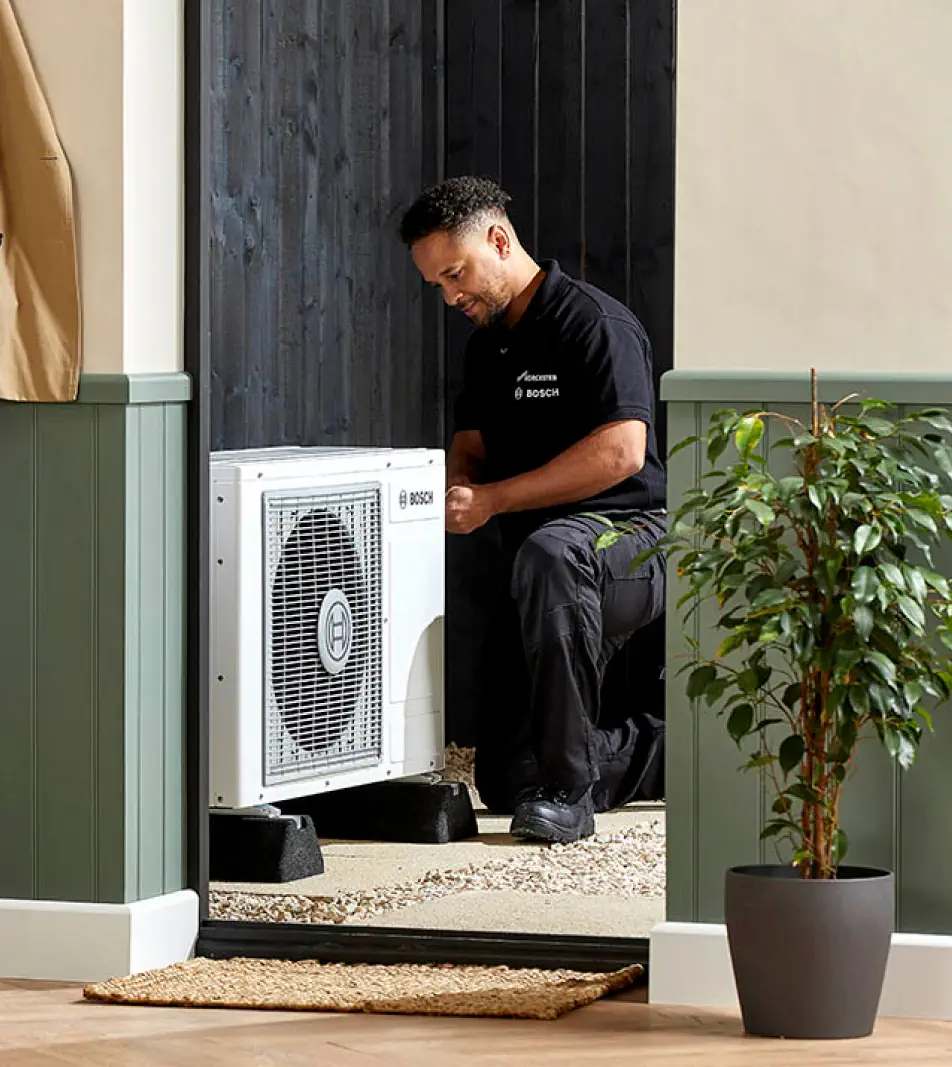As the UK moves towards a greener future, new policies are being introduced to reduce carbon emissions from heating systems. One such initiative is the Clean Heat Market Mechanism (CHMM), commonly referred to as the “boiler tax.” This policy is designed to encourage the transition from traditional gas boilers to low-carbon heating alternatives, such as heat pumps. But what does this mean for homeowners and businesses? Let’s break it down.
What is the Clean Heat Market Mechanism?
The Clean Heat Market Mechanism is a government policy that was originally scheduled for April 2024, however, it has been postponed to 1 April 2025. The goal is to increase the installation of low-carbon heating solutions and reduce the UK’s reliance on gas boilers.
Under this scheme, boiler manufacturers will be required to meet targets for selling heat pumps alongside traditional boilers. If they fail to meet these targets, they will have to pay a fine—hence the term “boiler tax.” The intention is to push manufacturers to innovate and offer more eco-friendly heating solutions.
Key Changes to the CHMM:
- Reduced Penalties: Initially, boiler manufacturers faced fines of £5,000 for each missed heat pump sale target. This penalty has been substantially reduced to £500 per missed sale, alleviating potential financial burdens on manufacturers.
- Adjusted Sales Targets: Manufacturers are now required to ensure that 6% of their sales are heat pumps from April 2025 to April 2026, with this percentage set to increase in subsequent years.
Who Will Be Affected by the Boiler Tax?
While the tax is imposed on boiler manufacturers, the costs may likely be passed down to consumers. Here’s how different groups might be affected:
- Homeowners: If manufacturers adjust pricing to offset their fines, new gas boilers may become more expensive. However, there could be more incentives and discounts for installing heat pumps.
- Landlords: Those renting out properties may need to consider future-proofing their heating systems to comply with potential regulation changes.
- Businesses: Commercial properties relying on traditional heating systems might see rising costs, encouraging a shift to greener solutions.
Incentives for Consumers:
- Increased Grants: To encourage the adoption of heat pumps, the government has increased grants to £7,500, helping to cover the installation costs.
- Simplified Planning Rules: Planning regulations have been relaxed to make it easier for households to install heat pumps. Notably, the requirement for heat pumps to be installed at least one metre away from a neighbour’s property will be scrapped early next year.
What Are the Alternatives to Gas Boilers?
With the Clean Heat Market Mechanism in place, the UK government aims to accelerate the adoption of low-carbon heating solutions. Some alternatives include:
- Heat Pumps: Air source and ground source heat pumps are the leading eco-friendly alternatives. They use electricity to extract heat from the environment, significantly reducing emissions.
- Hydrogen Boilers: While not yet widely available, hydrogen boilers are a potential future solution as the UK develops hydrogen infrastructure.
- Biomass Boilers: These use organic materials such as wood pellets and can be a viable option in certain settings.
What Should You Do Next?
If you’re considering replacing your boiler, it may be wise to explore low-carbon options now to benefit from government grants. For those sticking with gas boilers, keep an eye on potential price increases and regulations in the coming years.
The Clean Heat Market Mechanism is part of a broader effort to reduce the UK’s carbon footprint. While it may bring some initial costs and challenges, it also presents an opportunity to invest in greener, more efficient heating systems for the future.
Need Advice?
If you’re unsure about the best heating option for your home or business, speak to a qualified heating engineer who can guide you through the available choices and incentives. Book a Quote or Contact us today!



